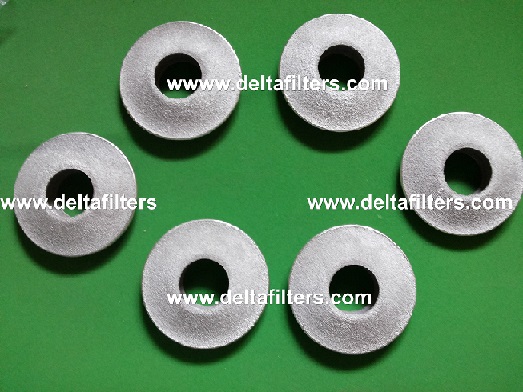Sintered Filter Materials: Choosing the Right Alloy for Your Application
In the intricate world of filtration, the choice of materials is a pivotal factor that can significantly impact the performance, durability, and efficiency of filters. Sintered filters, known for their versatility and robustness, come in various alloys, each tailored to specific applications. Let’s embark on a journey into the realm of sintered filter materials and explore the art of selecting the right alloy for diverse industrial needs.

1. Stainless Steel: The Versatile Workhorse
Overview: Stainless steel is the most common material used in sintered filters, prized for its exceptional corrosion resistance and durability
Applications:
Chemical Processing: Stainless steel’s resistance to corrosive chemicals makes it ideal for filtering aggressive substances.
Food and Beverage: The hygienic properties of stainless steel suit applications where purity is paramount.
Pharmaceuticals: In environments demanding strict adherence to cleanliness standards, stainless steel excels.
Benefits:
Resistant to corrosion and oxidation.
Maintains structural integrity in challenging environments.
Compatible with a wide range of temperatures.
1.Bronze: A Timeless Classic
Overview: Bronze sintered filters bring a touch of tradition and reliability, known for their longevity and efficiency
Applications:
Oil and Gas: Bronze’s ability to withstand high temperatures and resist corrosion suits it for filtering oil and gas.
Aerospace: In aerospace applications, bronze filters offer a balance of strength and weight.
Benefits:
Excellent wear resistance.
High thermal conductivity.
Ideal for applications requiring a porous structure.
1.Inconel: Conquering Extreme Conditions
Overview: Inconel, a family of high-performance alloys, is chosen for its ability to withstand extreme temperatures and harsh conditions
Applications:
Aerospace and Defense: Inconel’s heat and corrosion resistance make it suitable for demanding aerospace and defense applications.
Petrochemicals: Filters made from Inconel are deployed in environments where resistance to oxidation and high temperatures is critical.
Benefits:
Exceptional high-temperature strength.
Resistant to oxidation and corrosion.
Maintains structural integrity in challenging environments.
1.Hastelloy: The Corrosion-Resistant Champion
Overview: Hastelloy alloys, known for their corrosion resistance, find applications in aggressive chemical environments
Applications:
Chemical Processing: Hastelloy is a go-to choice for filtering corrosive chemicals.
Environmental Protection: Used in applications where filters must withstand exposure to harsh and corrosive elements.
Benefits:
Outstanding corrosion resistance.
Versatile in handling a broad spectrum of corrosive media.
Long-lasting performance in aggressive environments.
1.Monel: Robust in Severe Conditions
Overview: Monel, a nickel-copper alloy, is favored for its resilience in harsh conditions and resistance to corrosion
Applications:
Marine Industry: Monel’s resistance to saltwater corrosion makes it suitable for marine applications.
Oil and Gas: Filters made from Monel excel in environments where corrosion resistance is paramount.
Benefits:
Resistant to corrosion in various environments.
Retains strength at elevated temperatures.
Low susceptibility to stress-corrosion cracking.
Choosing the Right Alloy: A Delicate Balance
Selecting the appropriate sintered filter material involves a careful consideration of the specific requirements of the intended application. Factors such as temperature, chemical exposure, mechanical stress, and industry standards play a crucial role in the decision-making process.
Before making a choice, it’s essential to:
Evaluate Environmental Factors: Consider the conditions the filter will be exposed to, including temperature, humidity, and the nature of the substances being filtered.
Assess Mechanical Properties: Understand the mechanical stress the filter will endure and choose an alloy that can maintain structural integrity under those conditions.
Adhere to Industry Standards: Ensure that the chosen alloy aligns with industry-specific regulations and standards governing the application.

Conclusion:
In the intricate world of sintered filter materials, the right alloy serves as the foundation for efficient and reliable filtration. By understanding the unique properties of each alloy, industries can make informed decisions, ensuring that their sintered filters not only meet but exceed the demands of their applications.
Any Queries: support@deltafilters.com
Copyright © 2021 All Rights Reserved.
